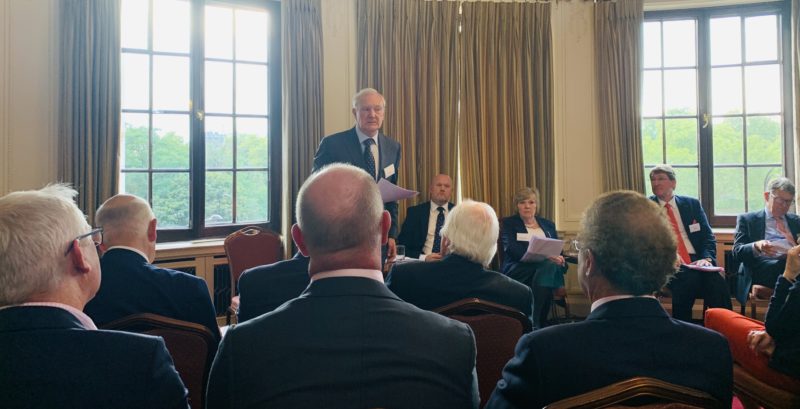
Event Review: Facing the talent and skills crisis in TECH businesses.

10.9.19 Event Review: Facing the talent and skills crisis in TECH businesses.
At Devonshire House, we always try to create time and space for members to think about the key business issues for which people make the biggest difference. This is why we held our recent Urgent Issues Panel Forum on the 10th September. Entitled “How to create, develop, manage and retain technology skills in STEM organisations”, it was chaired and led by Talent Retention Solution and hosted at the Royal Aeronautical Society in London.
STEM (Science, Technology, Engineering and Manufacturing) organisations are and will continue to be crucial to the success or otherwise of the UK economy. The event showed the centrality of talent issues in the minds its leading practitioners. Our esteemed panel included:-
- Terry Scuoler CBE (panel chair), Chair of Talent Retention Solution and The Institute of Export & International Trade.
- Sir Brian Burridge, Chief Executive at the Royal Aeronautical Society and former Commander-in-Chief RAF Strike Command.
- Susan Garden (Baroness Garden of Frognal), Liberal Democrat member of the House of Lords, former Government Whip and a former spokesperson for Business, Innovation & Skills.
- David Hughes MBE. Deputy Director, Apprenticeships at the Advanced Manufacturing Training Centre in Coventry.
- Christopher Buxton. Director & Chief Executive of the British Fluid Power Association and on the Board of the UK Trade Association Forum (TAF) & Engineering & Machinery Alliance. (EAMA).
The debate was rich and diverse in content, though 4 central themes did emerge:-
- It’s time for STEM to seize an opportunity from change. The rapid development of AI and other new technologies gives STEM employers the opportunity to create a new “spirit of excitement” both for talented people already within STEM organisations – and for those seeking to join them. There is a chance to harness technological transformations in a way not felt since, for example, the rapid advances in aerospace technologies seen in the 1960s and 1970s.
- It’s time to break free from short-termism. The success of STEM organisations in their approach to talent has been put at risk by politicians beholden to the electoral cycle. Short-term perspectives and tenures of ministers had resulted either in too many policy shifts, good initiatives that had not been seen through – or both. STEM organisations need a long-term consistency of political direction and support.
- It’s time to shift mindsets (faster than before) – Perceptions of the relative value of academic versus practical/technological skills have shifted in favour of the latter recent years, but commercial realities are moving further and faster. A mixture of political, social and generational biases are hampering the efforts of STEM employers to get, grow and keep talent and must be addressed. And this at a time when AI and other new technologies has made a mindset shift an urgent priority.
- It’s time to fix the STEM talent pipeline. There is clearly a gap perceived by STEM students between the skills they develop and the rewards they gain versus potentially lucrative careers elsewhere. For example, a quarter of UK engineering graduates don’t go on to become engineers, while significant gender imbalances clearly remain. To tackle these perceptions requires a concerted plan of action.
The future success and prosperity of the UK will be driven by STEM organisations, with the attraction, development and retention of talent at its heart. To find, educate, deploy, manage and support STEM talent will be driven by the way employers and policy makers work together to address the above issues.
Author: Trevor Merriden

